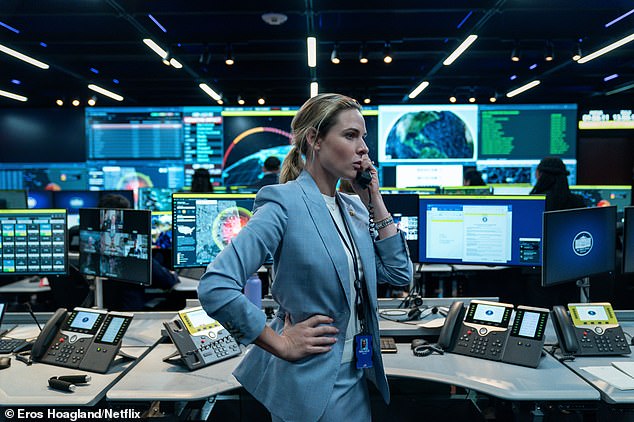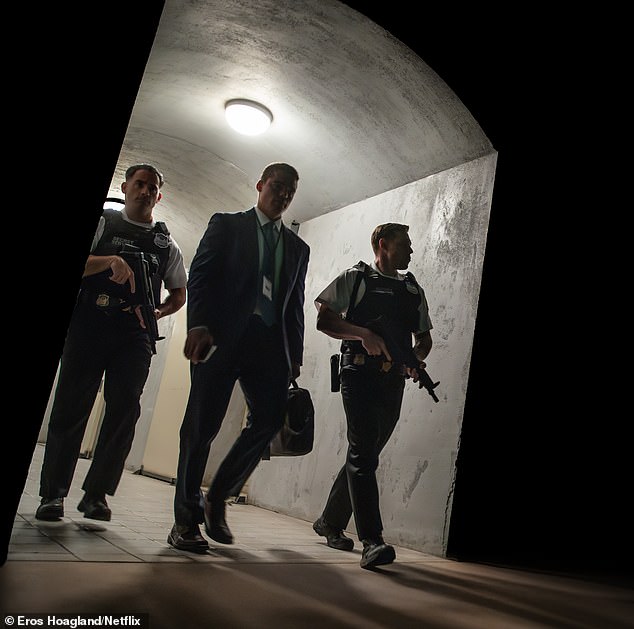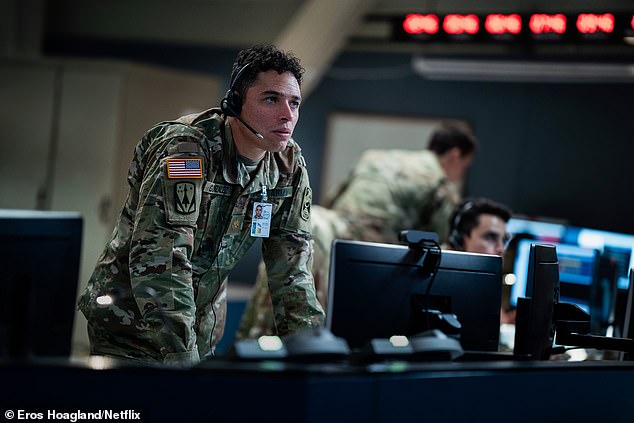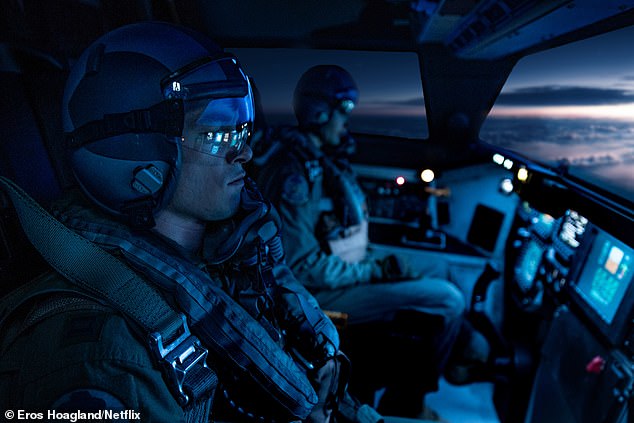A House of Dynamite (15, 112 mins)
Verdict: Riveting and explosive thriller
How might the United States respond in the event of a nuclear attack, with less than 20 minutes before an incoming missile lands on Chicago?
Even with all the sophisticated satellite technology at their disposal, US military intelligence chiefs have no idea which of their country’s enemies launched the missile, only that it began its potentially cataclysmic journey somewhere in the Pacific.
That is the alarmingly plausible crisis at the heart of Kathryn Bigelow’s breathlessly pacy thriller A House of Dynamite, comfortably the most exciting movie I saw at this year’s Venice Film Festival.
Bigelow was the first woman to be crowned Best Director at the Academy Awards, for the 2008 action thriller The Hurt Locker, set during the Iraq War.
She is still (with Chloe Zhao and Jane Campion) one of only three women to win the coveted prize and I wouldn’t bet against her becoming the first to win it twice.
A House of Dynamite is certainly good enough to win a raft of Oscars.

Kathryn Bigelow’s breathlessly pacy thriller A House of Dynamite is comfortably the most exciting movie at this year’s Venice Film Festival (Rebecca Ferguson as Captain Olivia Walker)

Bigelow’s film superbly evokes the furnace of decision-making that such an agonising dilemma might ignite (Gabriel Basso as Jake Baerington)
It is divided into three main acts, each chronicling the same events from a different perspective. We don’t see the US President (Idris Elba) until the third act, when, after being hurriedly ushered out of a cheerful visit to a school (echoing the moment George W Bush was told about the 9/11 attacks), he must decide whether or not to retaliate before Chicago is obliterated.
But retaliate against who? China? Russia? North Korea? Iran? All the above? The Russians are aware of the missile but say it’s nothing to do with them. Maybe it was even launched by accident, a scenario that inspired a terrific film at the height of the Cold War, Sidney Lumet’s 1964 thriller Fail Safe, starring Henry Fonda.
Then as now, the world stands uneasily on the brink of disaster. If this is a coordinated attack, can the US afford not to respond? Which cataclysm does POTUS choose?
Some 10 million people will die in Chicago if the missile detonates, hundreds of millions more around the world if he activates the nuclear codes.
These are carried by a fresh-faced lieutenant-commander (Jonah Hauer-King) whose job is to advise his boss on the various magnitudes of response open to him. ‘It’s like a diner menu,’ says the President, with gallows humour.
Bigelow’s film superbly evokes the furnace of decision-making that such an agonising dilemma might ignite. There is a clanging ring of truth to the conflicting advice the President gets, from a gung-ho army general (Tracy Letts) insistent that there absolutely must be some kind of response before it’s too late, to the startlingly young Deputy National Security Advisor (Gabriel Basso), thrust into the frenzy because his boss cannot be reached, who counsels restraint.
The excellent screenplay is by Noah Oppenheim, a former television executive, indeed president of NBC News, who doubtless tapped his White House contacts for insight.
Commendably, he and Bigelow do not talk down to their audience. There is some expository dialogue but it is sensibly kept to a minimum as abbreviations and acronyms fly. This alphabet soup adds to the authenticity. They know that EKV stands for Exoatmospheric Kill Vehicle, and DE for Designated Evacuee. We don’t need to.

The world stands uneasily on the brink of disaster. If this is a coordinated attack, can the US afford not to respond? Which cataclysm does POTUS choose? (Anthony Ramos as Major Daniel Gonzalez)
In some ways all this plays like the finest feature-length episode of The West Wing you ever saw. But much as I admired Aaron Sorkin’s hit TV drama, there was a rat-a-tat-tat glibness to the dialogue that is wholly lacking here. Nobody on this white-knuckle ride has time to be a smart-aleck.
Also, like all the scariest white-knuckle rides, it doesn’t last too long. Bigelow wisely keeps her film under two hours and wisely resists the temptation to tell us too much about the personal lives of her protagonists.
Instead, we learn just enough. The commander of a military base in Alaska (Anthony Ramos) is having some unspecified domestic issues. Captain Olivia Walker (Rebecca Ferguson), who takes charge in the White House Situation Room, is a loving wife and mother.
Elsewhere, a key expert on North Korea (Greta Lee) is spending her day off with her son at a reconstruction of the US Civil War Battle of Gettysburg, gently rebuking him when he calls the spectacle awesome. There were 50,000 killed at Gettysburg in three days, she notes. It’s the only clunky line in the entire film. Clearly we’re meant to compare what constituted huge wartime casualties then, with now.

Bigelow wisely keeps her film under two hours and wisely resists the temptation to tell us too much about the personal lives of her protagonists (Kyle Allen as Captain Jon Zimmer)
Then there’s Secretary of Defence Reid Baker (Jared Harris), who has recently lost his wife of 30-odd years and has a daughter from whom he is semi-estranged. She lives in Chicago. In just a few minutes, she might be vaporised.
Coincidentally, Harris also starred in Chernobyl, the brilliant 2019 TV drama that chronicled the events surrounding an actual nuclear disaster. This, in a sense, is a companion piece, about a nuclear catastrophe that mercifully hasn’t yet happened in real life. But Bigelow’s message is plain. We all live in a house filled with dynamite. So it might.
A House of Dynamite will be released in cinemas on October 3, and on Netflix a week later.












